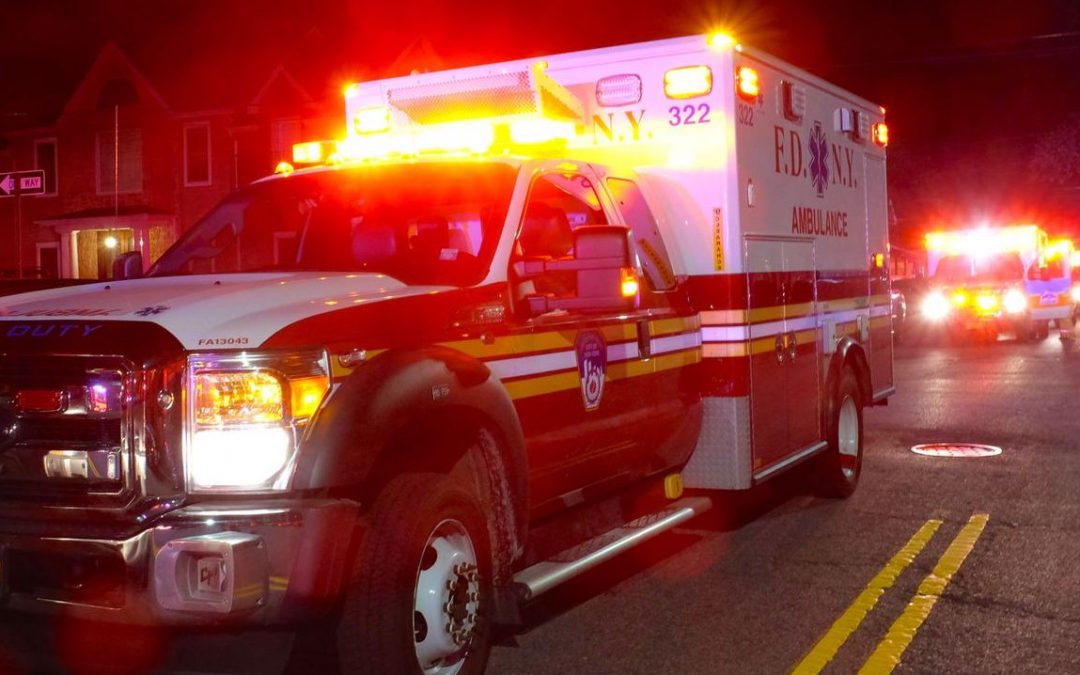I am a paramedic, active in the New York City 911 system, with nearly thirty years experience. This is my main concern of our ability to manage the COVID-19 pandemic:
New York City’s Emergency Medical Services often fails to handle our “routine” caseload. We were overwhelmed by high call volume before the pandemic virus emerged. Download a radio app for your smartphone, listen to the EMS Manhattan Central frequency, and hear the system break down every Monday (meaning: we are not able to send appropriate units to emergencies).
So, the concern is not just our response to the epidemic, but how the challenge will affect our normal weaknesses. “Normal weaknesses?” An emergency that happens with predictability is not an emergency. It is better to call that a failure to adapt.
What adaptations can be made?
NYC EMS’s biggest failure is our inability to cope with huge numbers of sub-acute, non-emergent situations. Here’s an example: on a Monday, with the system in failure, I was dispatched from Harlem to the 52 and Lexington Ave subway station. Arriving twenty minutes later, we find a woman whose emergency was that she desperately needed to move her bowels. She was almost doubled over, sitting on the steps. Since her friends are smart-phoning the proceedings, I can’t tell her the management of her number-twos has been her responsibility since age two. I had to ask her if she wanted to go to the Emergency Department. This is because I represent an institution that might be sued for millions of dollars in the unlikely event something untoward happens, because liability is sticky, and it has to be unstuck. We do that by passing the buck. Everyone up the medical chain does the same. If the doctor showed her the door, he’d be fired too. This is Defensive Medicine. Such extreme countering of liabilities are needed because NYC spends more on lawsuits than on practically anything else. Which turns into me having the power to sedate her, and take over her breathing, but not the power to tell her to go make boom-boom and not be a ninny.
Just this Monday, in the midst of the pandemic chaos, I had a little old lady with chest pain. Her BP was sky high. Her EKG was normal, the chest pain likely the result of her high BP. She had BP medication, which she did not take, because she is a ninny. Anywhere else in the world, she would be told to her to take her medication (and a nip for her nerves), and she will likely get better. Call back if not. But her objective, medical “likelihood,” as defined by clinical training and expertise, is negated by the risk of personal liability to the clinician. So she went to the ED, where she might be exposed to the pandemic virus. Clinicians all want to retain their livelihoods after the pandemic (and the more expensively trained, the more they have to retain). So, we take her, and all the doctors have to order all the tests.
Another example: I was working in Brooklyn during the 9/11 atrocity. We geared up for the flood of patients we expected. Our best EMT crew was working that day, telling the ninny patients to hit the bricks, a disaster was on, every bed would be needed. They got into very hot water. Potentially, they were liable for revocation of their licenses by the State Health Department for patient abandonment.
On a paramedic level, our ratio of “real” emergencies is probably under 20%. The ratio of “real” emergencies for EMT units? Probably 90% of their caseload could safely bugger off, and take themselves to a doctor (assuming they won’t pass the liability buck, which happens all the time).
I’ve asked the same of the ED doctors. Most say they could tell over half of the ED patients to go away, with no bad outcomes (doctors are not just concerned with managing true emergencies, but maybe ED ones should be).
We are filling up the ED with cases of pure defensive medicine, and concentrating them with COVID-19 cases. It’s clinicians violating rational “social distancing” precautions to protect themselves from liability (as defined, usually, by non clinicians). Such a loop might become a runaway, self-sustaining chain reaction: real liabilities induced through entertaining unlikely ones, causing real ones, etc.
Before we think about the socialization of our healthcare system, we should think about a re-evaluation of our unique (by City, State, and International) approach to liability.


Ed! Scott Weinstein here. I’m a friend of George V since ’81 when we were in 6th grade. I met you once at Hancock. I’ve been a fan of your work and wanted to let you know that this last piece was terrific! I enjoy this blog very much and I thank you for the educational common sense you always deliver. I hope you are well.
Hey Scott. I kinda remember you.
Thanks for the kind words. You stay safe too.
Hope to see you Hancock again!